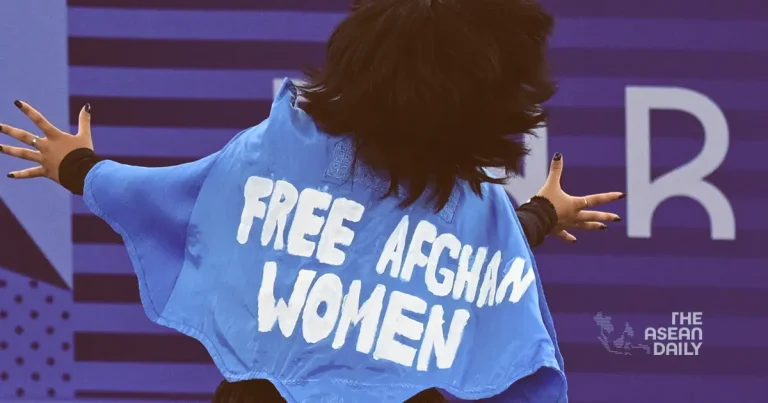10-8-2024 (PARIS) In a controversial turn of events at the Paris 2024 Summer Olympic Games, Afghan break-dancer Manizha Talash, a member of the refugee Olympic team, was disqualified from the breaking competition’s pre-qualifiers on Friday. The disqualification came after Talash displayed a cape bearing the words “Free Afghan Women” during her routine.
The 21-year-old B-Girl, who currently resides in Spain, donned a light blue cape emblazoned with the politically charged message in large white letters. The statement was visible as she performed her routine, ultimately losing to India Sardjoe of the Netherlands.
The World DanceSport Federation, the governing body for breaking at the Olympics, swiftly responded to the incident. In an official statement, they confirmed Talash’s disqualification, citing the display of a political slogan on her attire as the reason. This action aligns with the Olympic Charter, which prohibits political demonstrations or propaganda on the field of play and podiums.
“Free Afghan women.”
Afghanistan’s first female Olympic breakdancer Manizha Talash competed at #Paris2024, the first Olympic Games where Breakdancing was included. Video via @Thibuch
— Mona Eltahawy (@monaeltahawy) August 9, 2024
Speaking to reporters following her disqualification, Talash offered a poignant perspective on her actions. “If I’d stayed in Afghanistan, I don’t think I’d exist. They’d execute me or stone me to death,” she stated, highlighting the perilous situation for women in her home country under Taliban rule.
The incident has sparked debate about the intersection of sports and political expression, particularly concerning athletes from conflict-ridden regions. Talash’s disqualification comes at a time when the International Olympic Committee (IOC) has made efforts to include refugee athletes, with the Paris Games marking the third Olympics featuring a dedicated refugee team.
The refugee team at these Games comprises 37 athletes competing across 12 different sports, including athletics, badminton, and boxing. Afghanistan’s representation in this team – three women and three men – carries significant symbolic weight. It serves as a pointed message to Afghanistan, where under Taliban governance, women’s and girls’ access to sports and gyms has been severely restricted.




